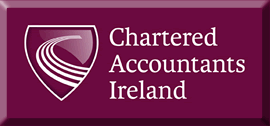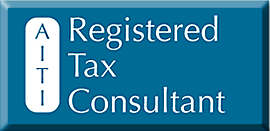Tax
Top Ten Tips when dealing with Revenue.
Article by Patrick Sutton, Partner, O’KellySutton, The Sunday Business Post, 2nd Sept, 2012.
Taxpayer’s compliance record:
A compliant taxpayer is significantly less likely to be selected for Revenue audit. Revenue can also assist in obtaining a phased payment plan in the future, should you ever find yourself unable to pay your tax liabilities on time.
Accurate returns:
As we all know, it is a legal requirement that tax returns are accurate. The penalties for false returns are severe and can include prison sentences in some cases. If you fine a return already submitted is not correct, we advise that a corrected return or supplementary return be submitted. Continually correcting returns can attract the Revenue’s attention.
Timely returns:
Read the rest of this entry »
Work with the Tax-man to help with your late tax payments.
An Article that appeared in the Irish Independent, June 2012, advises Individuals and Small Business Owner to work with Revenue. The owners of small businesses and personal taxpayers, striving to survive, should approach the Revenue Commissioners when the cash flow is not there to pay their taxes as they fall due. However, this is the reality that is facing many small and medium enterprises on a daily basis.On top of concerns about maintaining sales and getting paid by customers, an additional worry they most certainly do not want is owing money to Revenue and not being able to pay it.
The Revenue has put in place a structure called a Phased Payment Arrangement (‘PPA’) to support and facilitate
Read the rest of this entry »
Revenue in Training to focus on GAA clubs
The taxman will begin to trawl the books of individual GAA clubs in the late summer or autumn. It is understood that tax officials will look at payments made to managers and coaches as part of a detailed examination into the way clubs conduct their business.
Under the GAA’s rules, the only payments team managers can receive are vouched expenses for travel and meals. It is also understood that negotiations are still continuing between Croke Park and the Revenue Commissioners over the issue of payments to referees. Officials in Tipperary were advised that new revenue guidelines will now be enforced nationally with clubs told to cease with cash payments and instead pay all bills and other expenditure by cheque.
In a Dáil reply Michael Noonan, Finance Minister made it clear that if GAA clubs pay more than vouched expenses, or pay travel expenses at a higher level than the civil service rate, there are tax implications.
Part-time workers who may be retired, including ground staff and caretakers, who get paid for their work will now have to declare any income they get. Revenue sources said that if a pensioner receives a payment from any employer, it may have tax implications depending on the level of income they receive from other sources. Revenue is also expected to focus on possible benefit in kind implications arising from the practice of making cars available to managers and officials.
Assistance on Tax Issues contact Patrick O Rourke, OKelly Sutton, Kildare Town. www.okellysutton.ie
Courts get tough on Tax Evaders: (23-3-12)
Recently the Dublin Circuit Court found a man guilty and sentenced him to jail for four years for failing to pay VAT on 119 second hand cars to the value of €226,718. He has since paid the tax of €226,718 that was due. The Judge, Martin Nolan said that sometimes tax evaders thought they could buy themselves out of trouble but the judge stated “He must pay for it as a matter of punishment and people considering going down this road”. Patrick O Rourke Partner OKellySutton, Kildare. www.okellysutton.ie
Man jailed over garlic tax scam: (9-3-12)
Fruit and Vegetable business man has been jailed for six years for a €1.6 million scam involving the importation of garlic. He avoided paying customs duty on over a thousand tonnes of garlic from China by having them labeled as apples. The maximum sentence for the offence is five years in prison or a fine of three times the value of the goods.
Judge Martin Nolan imposed the maximum term on one count and one year on another count. These are to run consecutively, meaning a total of six years. However, the judge added he had engaged in a “grave” and “huge” tax evasion scheme. The import tax on garlic “may or may not” be excessive, he said but that this was for the Oireachtas to decide and not individuals.He said he had to impose a significant jail term because such offences are difficult to uncover and therefore the only effective deterrence is lengthy prison terms for those who are caught. Partick O Rourke , Partner OkellySutton , Kildare. www.okellysutton.ie


 O'Kelly Sutton
O'Kelly Sutton
